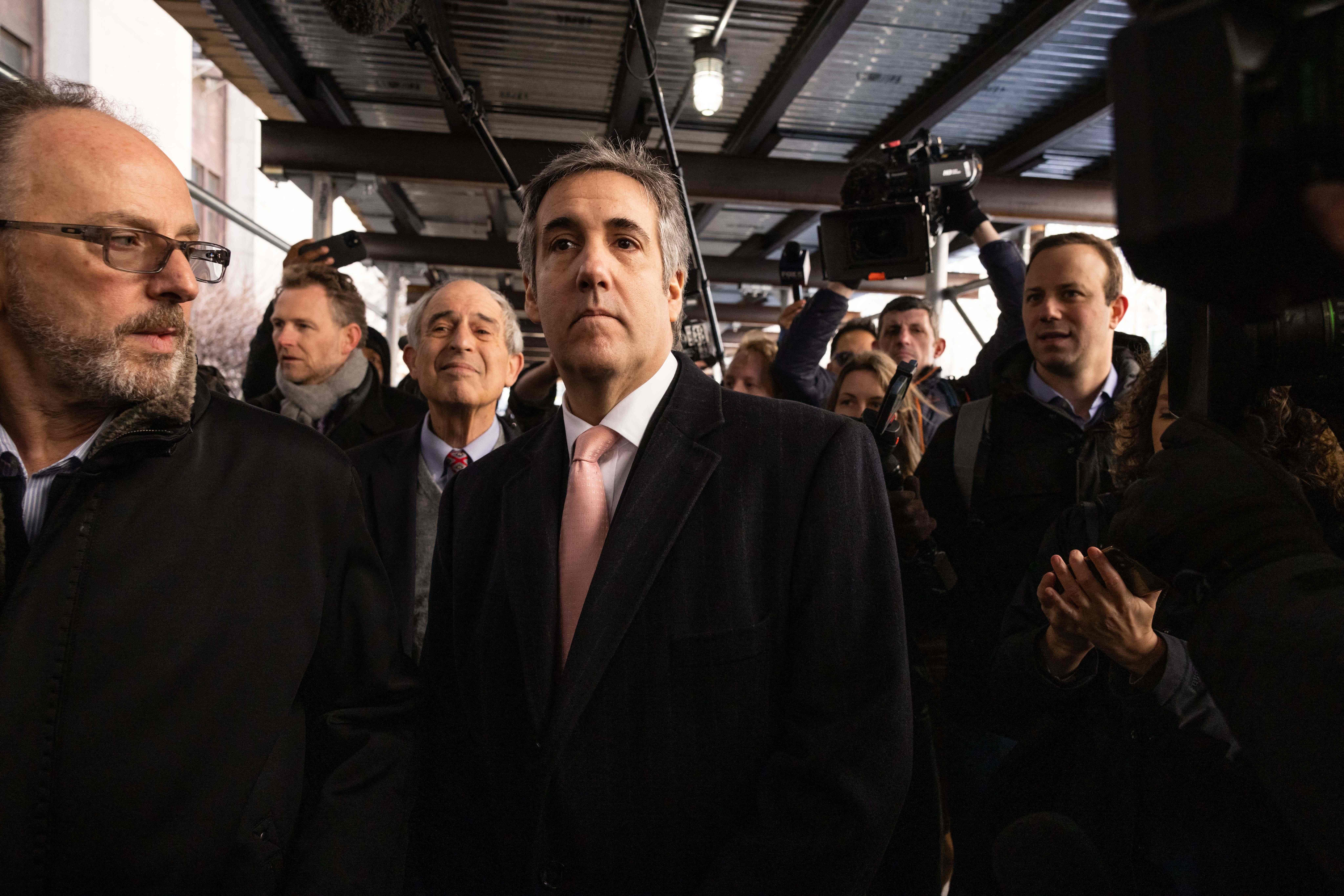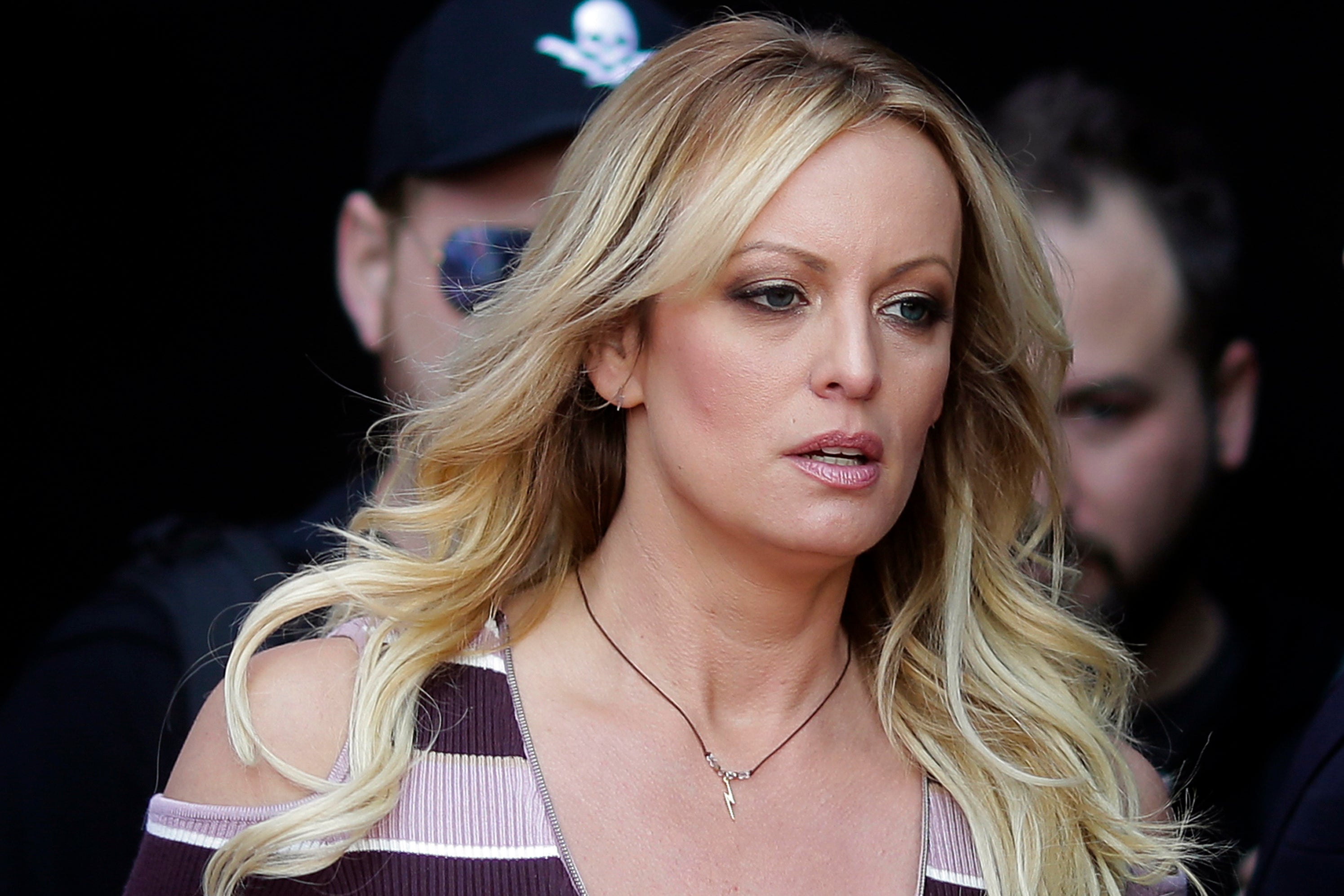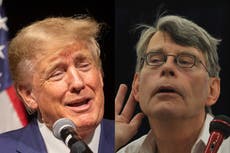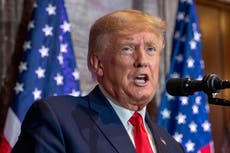What is an arraignment? Definition and meaning explained
Donald Trump has become first president in US history to face criminal charges
Donald Trump has become the first former US president to face criminal charges after a Manhattan grand jury voted to indict him over hush money payments made to adult film star Stormy Daniels.
The grand jury’s decision to indict Mr Trump over the payments, which were made in the run-up to the 2016 presidential election, became public on Thursday 30 March.
He faces 34 felony counts of falsifying business records, allegedly to conceal what prosecutors described as an illegal scheme to influence the 2016 election by suppressing negative stories about him.
The one-term president pled not guilty during his arraignment in Manhattan Criminal Court on Tuesday 4 April.
New York City was braced for potential protests outside the courthouse but – despite a few scuffles between protesters and counterprotesters – there was little in the way of unrest.
Meanwhile, back in Florida, Mr Trump delivered a scathing primetime TV address on Tuesday night where he railed against the charges, Mr Bragg and Judge Merchan – despite the fact the judgewarned him to stop making threatening posts on social media that could inflame tensions or incite violence hours earlier.
What is an indictment in the US legal system?
An indictment is a formal notice that prosecutors believe that an individual has committed a crime, and it contains basic information about the charges that they face.
To get an indictment on a felony charge a prosecutor takes their case against an individual in front of a grand jury, according to the Department of Justice.
Witnesses can be called to testify before the grand jury and evidence is presented during a behind-closed-doors session or sessions.
After listening to the prosecutor and the witnesses, the grand jury secretly votes to decide if there is enough evidence to bring charges in the case.
If a grand jury decides there is not enough evidence then there will be no indictment.
All proceedings before a grand jury, which, for example in a federal case, is normally made up of 16 to 23 members, are sealed. At least 12 people on a grand jury must agree for an indictment to be ordered.

Lawyers say that the burden of proof for a grand jury is low as the process does not determine any guilt or innocence; rather it is a procedure to take a case forward and ultimately to trial.
What is an arraignment?
If an indictment is returned, a prosecutor can then take the case to an arraignment hearing, which takes place before a judge.
During the arraignment hearing the judge reads out the charges faced by the defendant and the maximum punishments for those charges.

At this stage, the defendant can plead guilty, not guilty or enter into a plea deal with prosecutors.
If the defendant pleads not guilty the case proceeds and the judge will set any bond, a pre-trial hearing date and a trial date.
A defence attorney is hired or appointed for the defendant. The case can then move on to discovery, which includes access to reports, statements of prosecution, witnesses and evidence that are to be presented to a jury at trial.
Was Trump arrested?
Mr Trump was arrested on 4 April ahead of his arraignment hearing.
As part of the booking process, his fingerprints and personal details were taken.
However, he was not placed in handcuffs and a mugshot was not taken.
The former president flew into New York City on Monday afternoon and then flew back to Florida immediately after the arraignment.
What charges does Trump face?
The case involving Ms Daniels involves a $130,000 hush money payment to allegedly buy her silence before the 2016 presidential election, as well as other alleged payments to suppress negative stories.
Ms Daniels alleged an extramarital affair with Mr Trump, a claim that the former president’s then-attorney Michael Cohen sought to keep quiet with a payment that was reimbursed to him through the Trump Organization, according to court filings in the federal case to prosecute him.
In that case, to which Cohen pleaded guilty, prosecutors argued that Mr Trump’s business concealed the nature of the payments.
On Tuesday, Mr Trump was charged with 34 felony counts of falsifying business records in order to conceal illegal activity connected to his 2016 presidential campaign.
The “catch and kill” campaign allegedly involved Mr Trump and Cohen making hush money payments during the 2016 run to suppress negative information about him by silencing individuals over alleged affairs he had with women .
Three specific alleged affairs and hush money payments were mentioned in the charging documents – a $130,000 payment to adult film star Ms Daniels, a $150,000 to former playboy model Karen McDougal and a $30,000 payment to a doorman at Trump Tower who claimed he had information that Mr Trump had fathered a child with a woman while married to Melania Trump.
Mr Trump “repeatedly and fraudulently falsified New York business records to conceal criminal conduct that hid damaging information from the voting public during the 2016 presidential election,” the charging documents read.
Each of the 34 criminal charges relates to an individual entry in the Trump Organization’s business records.
To prove that Mr Trump committed a fraudulent offence that rises above a misdemeanour, prosecutors need to present evidence that his records were intentionally falsified and were done so with the intention of committing, aiding or concealing another crime.
This story was updated on Tuesday 4 April 2023 to reflect the newly public charges against Mr Trump.
Join our commenting forum
Join thought-provoking conversations, follow other Independent readers and see their replies
Comments





Bookmark popover
Removed from bookmarks